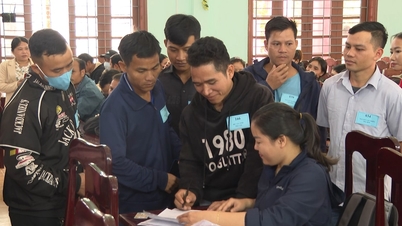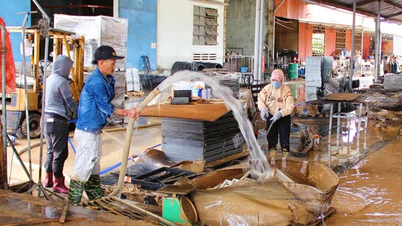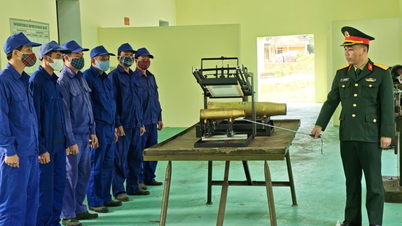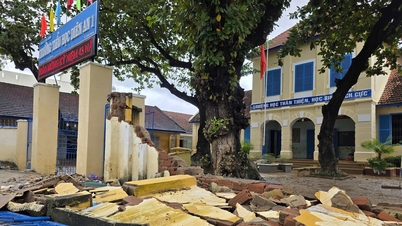The labor force at vocational training schools has not met the needs of businesses, and vocational students do not have many opportunities to practice at businesses. This is the issue raised at the working session of the Ho Chi Minh City People's Council's Supervisory Delegation on state management of labor and employment in Thu Duc City, which took place this morning (September 18).
Students' practice is difficult
From 2021 to the first 6 months of 2024, Thu Duc City has created new jobs for more than 21,150 workers. The rate of working workers who have received vocational training with certificates or certifications in the first 6 months of 2024 reached 88%. The unemployment rate in Thu Duc City is below 3%.
Pointing out difficulties in the labor and employment situation in the area, Mr. Nguyen Ky Phung, Vice Chairman of Thu Duc City People's Committee, said that the demand for occupations and vocational training of enterprises is very diverse, but the policy of supporting vocational training is low compared to the average tuition fees of training occupations, so it has not met all the needs of enterprises.
The work of directing students after graduating from high school to vocational training is still limited because parents still place importance on degrees.
Mr. Dang Van Dai, Principal of Dong Sai Gon Secondary School, said that the school is funded and supported by Thu Duc City with many policies to develop secondary and vocational training programs.

However, the school is facing many challenges in coordinating with businesses to improve training quality and meet the human resource needs of the labor market.
Specifically, schools have great difficulty connecting with businesses to review and supplement training programs to suit the actual needs of the market. Businesses often have high requirements for expertise and practical skills, but the establishment of a coordination mechanism to adjust the curriculum has not been fully implemented.
In addition, it is difficult to send students to practice in enterprises. Enterprises have to focus on production and do not have enough time to guide students in their practice. This limits students' practical learning and affects the quality of training.
Mr. Dang Van Dai hopes that in the coming time, support mechanisms will be built more fully, helping vocational training facilities to connect more closely with businesses.
“Enterprises have equipment to meet production needs, while the school's equipment is limited. Therefore, coordination between the two sides for students to access advanced technology becomes difficult. The school hopes to have a mechanism for businesses to support or coordinate with the school,” Mr. Dai emphasized.
Need to be proactive
According to Ms. Luong Thi Toi, Deputy Director of the Department of Labor, War Invalids and Social Affairs of Ho Chi Minh City, establishing a cooperation mechanism is necessary to ensure benefits for both vocational schools and businesses.
Schools can provide businesses with a source of interns, from which businesses can evaluate their abilities and accept them after graduation.

However, implementing this mechanism requires attention and capacity from both schools and businesses.
In addition, another challenge the school is facing is the rate of micro-enterprises in Thu Duc City, accounting for up to 87%. This makes labor management and labor contract signing difficult, affecting labor safety and hygiene.
Ms. Toi suggested that there should be closer direction from local authorities and coordination between departments to closely monitor the business situation and ensure the rights of workers:
“The issue in the coming time is to pay attention to research on how to provide data sources to forecast the situation and how to propose to the city leaders in setting policies for employment issues. The Department of Labor, War Invalids and Social Affairs will also pay attention to making additional proposals,” Ms. Toi said.
In addition, regarding the provision of information on forecasting human resource needs, Ms. Toi also affirmed that the Center for Human Resource Demand Forecasting and Labor Market Information of Ho Chi Minh City regularly conducts surveys and reports quarterly, providing data to localities and schools to grasp labor needs. This helps schools to adjust their training programs to suit the labor market.
Source: https://vov.vn/xa-hoi/day-nghe-o-tpthu-duc-gap-kho-phu-huynh-van-con-tam-ly-trong-bang-cap-post1122259.vov
















































































































Comment (0)